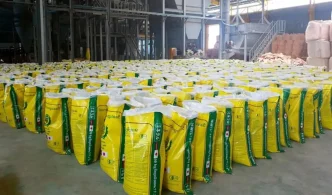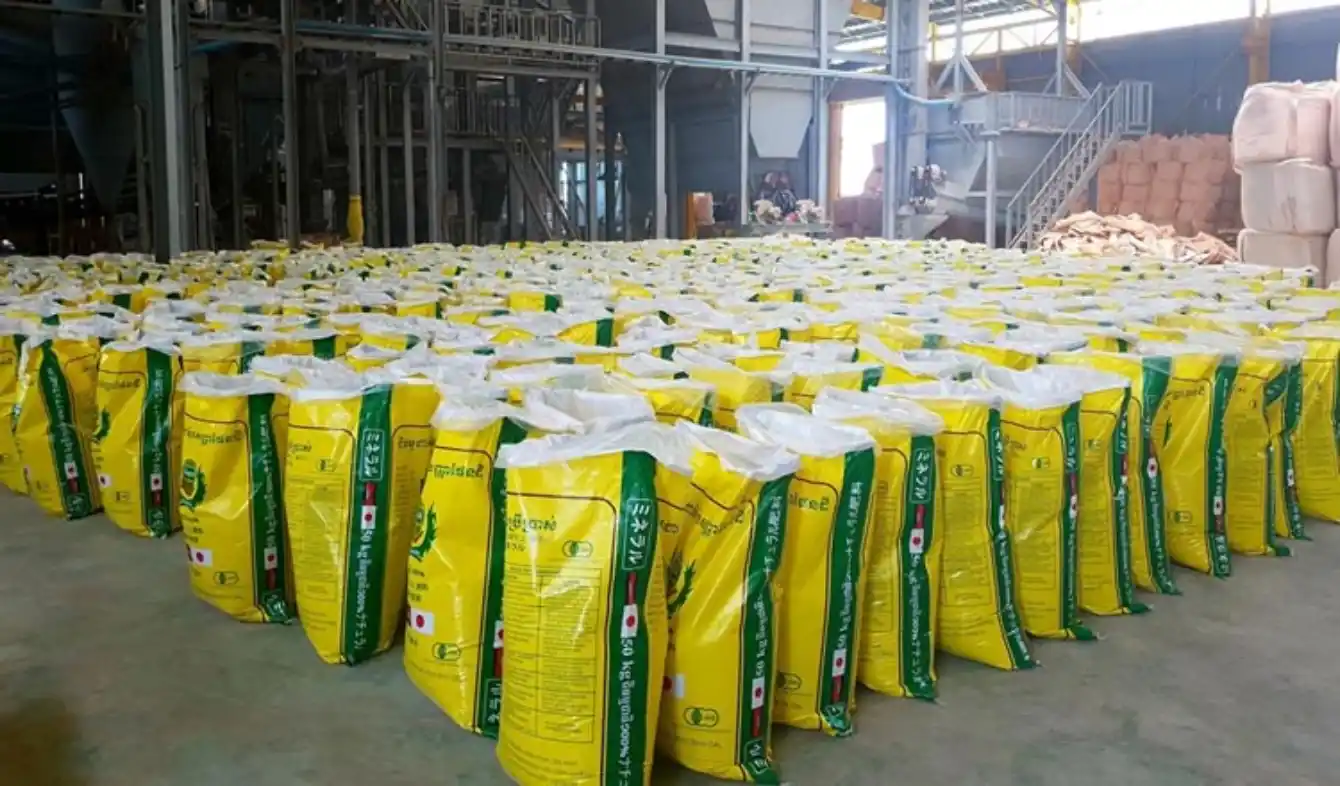Phnom Penh – Cambodian senators and lawmakers have raised urgent concerns over the quality and safety of imported fertilisers and seeds, calling for rigorous inspections to protect the nation’s agricultural sector and food security. Amid growing fears of substandard products flooding the market, officials warn that unchecked imports could pose risks to farmers’ livelihoods, public health, and the environment.
Rising Concerns Over Agricultural Imports
The agricultural sector, a cornerstone of Cambodia’s economy, employs nearly a third of the population and contributes significantly to GDP. However, the increasing reliance on imported fertilisers and seeds has sparked alarm among policymakers. During a recent parliamentary session, Senator Ly Yong Phat and other lawmakers highlighted reports of low-quality or counterfeit products entering the country, potentially harming crop yields and soil health.
“We cannot allow unverified products to jeopardize our farmers’ hard work” said Senator Ly Yong Phat during the session, as reported by local outlets. He emphasized that substandard fertilisers could contain harmful chemicals, while uncertified seeds might fail to germinate or introduce invasive species. The senator urged the Ministry of Agriculture, Forestry and Fisheries to strengthen border controls and enforce stricter quality standards.
Economic and Environmental Stakes
Cambodia’s agricultural output, including rice, cassava, and rubber, is vital for both domestic consumption and export markets. The country has made strides in boosting productivity, but farmers often depend on imported inputs due to limited local production capacity. According to government data, Cambodia imports millions of dollars’ worth of fertilisers and seeds annually, primarily from neighboring countries like Thailand and Vietnam.
However, the influx of unregulated products poses a dual threat. Economically, poor-quality inputs could lead to crop failures, driving farmers into debt and undermining rural communities. A 2023 report by the Cambodian Agricultural Research and Development Institute noted that substandard fertilisers had been linked to reduced yields in several provinces, though exact figures remain unclear. Environmentally, the overuse of chemical-laden fertilisers risks contaminating water sources and degrading arable land, a concern echoed by environmental activists.
“If we don’t act now, the long-term damage to our soil and rivers could be irreversible” said an environmental advocate based in Siem Reap, who requested anonymity due to the sensitivity of the issue. Activists have called for greater transparency in the import process and harsher penalties for distributors of non-compliant goods.
Calls for Regulatory Overhaul
Lawmakers have proposed a multi-pronged approach to address the issue. First, they advocate for enhanced inspections at border checkpoints, where officials would test samples of incoming fertilisers and seeds for compliance with national standards. Second, they suggest establishing a centralized database to track imports and flag suspicious shipments. Finally, some senators have pushed for increased funding to support local production of agricultural inputs, reducing dependence on foreign suppliers.
The Ministry of Agriculture has acknowledged the concerns and pledged to collaborate with relevant agencies. In a statement released last week, a ministry spokesperson confirmed that new guidelines for importers are under review. “Our priority is to ensure that all products meet safety and quality benchmarks” the spokesperson said. However, critics argue that enforcement remains weak due to limited resources and coordination challenges.
Adding to the complexity, Cambodia’s porous borders and informal trade networks make it difficult to monitor all incoming goods. Smuggled fertilisers and seeds, often sold at lower prices, are a persistent problem, particularly in rural areas. “Farmers are tempted by cheap options, but they don’t realize the risks” said a provincial agricultural officer in Battambang, speaking on condition of anonymity. He noted that many small-scale farmers lack access to information about certified products, leaving them vulnerable to exploitation.
Regional Context and Global Implications
Cambodia’s struggle with agricultural imports is not unique in Southeast Asia, where rapid urbanization and population growth have intensified pressure on food systems. Neighboring countries like Laos and Myanmar face similar challenges, with reports of unregulated fertilisers contributing to environmental degradation. In Thailand, authorities have cracked down on illegal imports, seizing thousands of tons of counterfeit products over the past two years, according to regional news sources.
Globally, the issue ties into broader debates about food security and sustainable farming. The United Nations Food and Agriculture Organization (FAO) has repeatedly warned that substandard agricultural inputs threaten smallholder farmers, particularly in developing nations. Cambodia, which aims to become a regional agricultural hub, risks falling behind if it cannot safeguard its sector from such threats.
Moreover, the economic implications extend beyond national borders. Cambodia’s rice exports, a key revenue source, compete in a global market sensitive to quality and safety standards. Any perception of compromised products could damage the country’s reputation among international buyers, potentially leading to trade restrictions or lost contracts.
Public Sentiment and Farmer Voices
Among Cambodian farmers, opinions on the issue vary. In rural Kampong Cham, some expressed frustration over the high cost of certified inputs, which can exceed 1,000,000 Cambodian Riel (US$245) per season for a small plot. “We buy what we can afford, even if it’s not the best” said a rice farmer who declined to be named. Others, however, welcomed the call for stricter checks, citing past experiences with ineffective fertilisers that left them with diminished harvests.
Social media platforms, including posts on X, reflect a mix of concern and skepticism. Users have shared anecdotes of crop failures linked to dubious products, while others question whether new regulations will be enforced effectively. “Rules are meaningless without action” wrote one user based in Phnom Penh, echoing a sentiment shared by many.
Challenges Ahead for Policymakers
Implementing tighter controls on agricultural imports will not be easy. Cambodia’s government must balance the need for regulation with the realities of a resource-constrained bureaucracy. Training inspectors, upgrading testing facilities, and educating farmers about certified products require significant investment—funds that may be diverted from other pressing needs like infrastructure or healthcare.
Additionally, any crackdown on imports risks straining trade relationships with neighboring countries, which supply a large share of Cambodia’s fertilisers and seeds. Analysts suggest that diplomatic dialogue will be crucial to ensure that new policies do not disrupt regional supply chains. “It’s a delicate balance between protecting our farmers and maintaining good ties with our partners” said a political commentator in Phnom Penh.
Looking Forward
As Cambodia grapples with the challenges of regulating agricultural imports, the stakes for its economy, environment, and rural communities remain high. The calls from senators and lawmakers signal a growing recognition of the problem, but translating rhetoric into results will require sustained effort and coordination. For now, farmers and policymakers alike await concrete steps, hoping that stronger safeguards will secure the future of one of the nation’s most vital industries.















